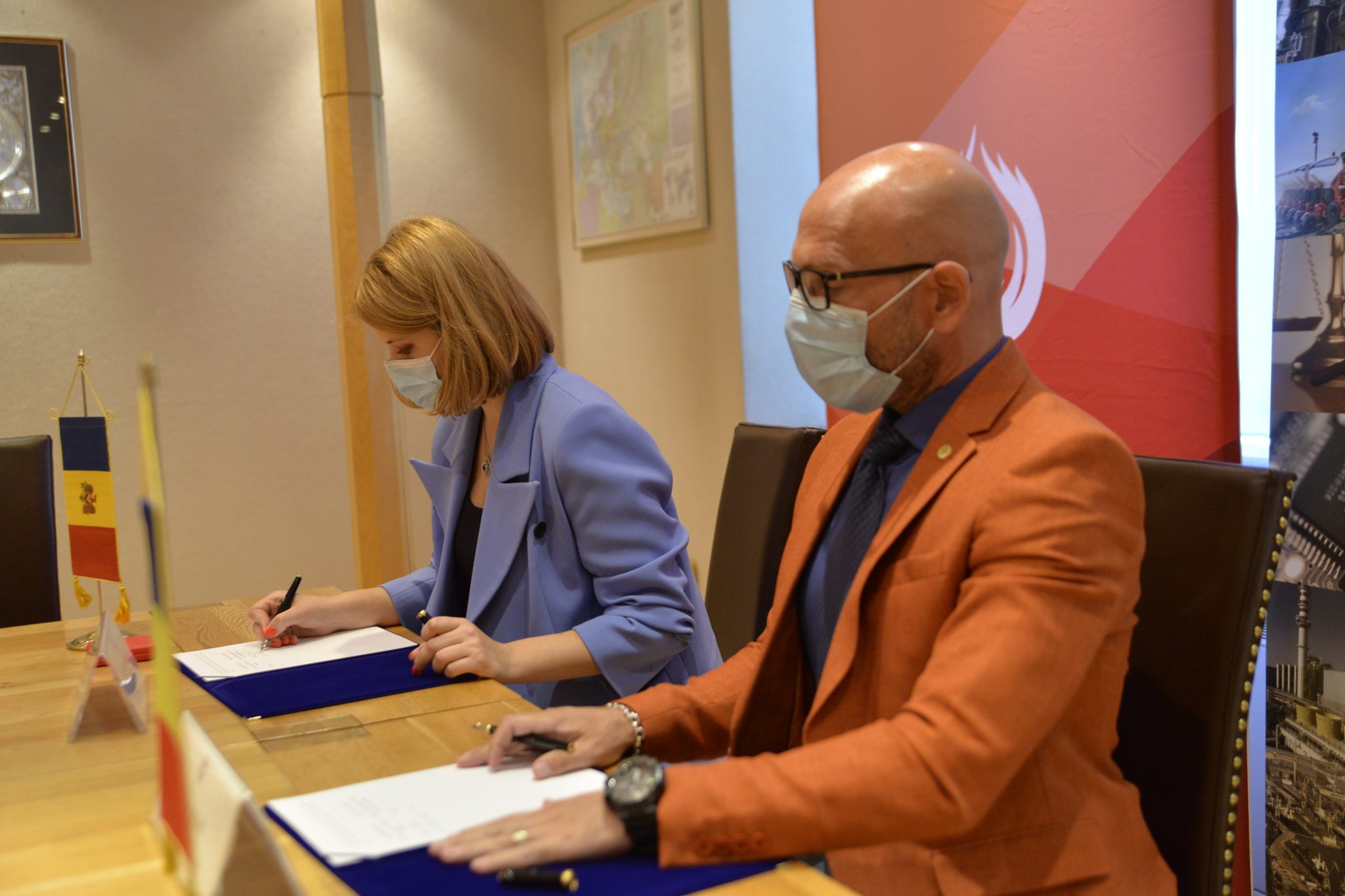Miscellaneous
Who protects the new edition of the law on internal trade?

The comments of InfoMarket agency
Supermarkets will have to learn how to make the money: they will no longer be able to sell their shopping areas and live at the expense of manufacturers. It was said by the Director of the largest food companies in Moldova in an interview to InfoMarket agency, commenting the changes to the law on local trade, effective on January 1st, 2017.
The owners of retail networks united against changes in the law. They reached the government and ask for the elimination or at least delay of new rules with subsequent latitudes and they also applied to print press. This is why we do not call a single name of a supplier or manufacturer, who expressed their backing for the new changes. Angry networkers can boycott products of active defenders of the new law on domestic trade, if desired. But almost all the local producers from dairy, meat and fish industries are fully encouraging the innovations.
What, in fact, has changed? Firstly, the shops are forbidden to collect any payments from producers. Secondly, the shops are forbidden to return unsold goods to manufacturers, all unsold goods should dispose at the expense of shops. Third, the maximum period of payments settlement between suppliers and sellers has been reduced from 90 to 30 days from January 1st, 2017.
It all started in 2002-2003, when Moldova has come a large foreign trade network. They explained to the entire retail segment of Moldova how to “work” with suppliers and set an example. If you are a manufacturer or supplier and you want to be present at the sellers’ network, then pay an entrance fee, pay for shelf your item posted, pay for participation in the catalog and marketing promotion, the products are delivered with an additional discount on wholesale prices (that is, give bonuses to the store) and finally additional discounts at the end of the year on the volume of goods sold.
Here is an exclusive data from the agreements between stores and suppliers recently published in “Economic Review” journal: “The size of a discount from the basic price of the supplier (it is a bonus) from 3% to 8% with each delivery; the percentage of pre-sales services – 5%; marketing contributions – 0.5-2% of annual sales and 160 euro up to 4000 lei for each promotional campaign, entrance fees to the new store 2000 to 5000 lei for each heading, fee for entry into a shop of the new brand from 400 lei, the fee for the space on shelves of 50 euros. “
The most important is everything that the store did not sell, it could return to the supplier, or rather the supplier itself provided the disposure of their unsold goods. The store did not give any guarantees to suppliers and manufacturers that all the provided goods will be sold. The stores ordered many products, as placed on the shelves, but not as much as you can actually sell. There are no risks for the retail sector, all that is not sold, the suppliers must take back. There was always an abundance of goods clogged the shelves and beautiful display-windows in large shopping networks. This “beauty” paying by suppliers. Suppliers and manufacturers became powerless and voiceless “sheep” who are constantly “sheared” over the past 15 years.
Until now, the standard delay of payment for the sold products was 60-90 days (the period reached up to 1 year for some products, with a long shelf life). The stores credited from suppliers: decorations for display-windows, built new stores, etc. The contracts are often prescribed that the conditions may change during the year depending on the economic situation. Moreover, a retailer could “hide” the competitive brands on the shelf on purpose. If the supplier did not like it, he could do nothing, except to quit partnership with retailer. It was the principle of “cooperation” between suppliers and sellers, which operated until 2017.
Speaking of stores, they are large supermarkets and shopping networks. Speaking about the suppliers and manufacturers, we mean food supplies.
MAF shops (minor architectural forms) really know how to calculate the volume of goods, they buy as much products as they can sell. They learned long ago how to make calculations based on the actual demand of consumers. That is why such small shops always have the freshest products. A small shop with a small volume of sales cannot afford to dictate terms to the supplier, the possible loss of small shop is not critical for a supplier. It cannot be said about the large shopping networks. The major stores have to learn now how to count and guarantee the sale of the suppliers’ products, albeit in smaller amounts.
Independent experts say that the amendments to the law will be beneficial to local food manufacturers, it will give impetus to their development. Yes, probably, it will increase the cost of additional supplies of products in shops, but now the number of supplies may increase several times. It is definitely cheaper for manufacturers and suppliers rather than freeze their money on the beautiful supermarket shelves, providing shops with flourishing display-windows, then dispose their unsold products, putting additional losses on themselves.
There is another aspect of the returning products practice. Anyone who is even slightly versed in accounting, is well aware that it is a great opportunity to evade taxes. This so-called unreported “gray zone”, where is often used cash rotation. Some returns of the products were not less than 20% of the initial delivery, the enterprise-manufacturer blew return products to re-production without a corresponding tax, which could be used for purchasing quality raw materials.
It would be wrong to assert that changes in the law apply only to relations between economic agents. It is directly related to consumers as well. Producers receiving returned products from the shops, were forced to use again the expired products in order to minimize losses. They made different sausages out of expired sausages, cheaper and lower quality; lower-quality dairy products out of expired dairy products, cheap bread out of expensive unsold bread. Thus, the quality suffers greatly affecting the final products in stores. Now consumers have more guarantees that the products are made from high quality raw materials, not of expired products. After all, the manufacturers simply will not have expired products and nothing will be re-processed.
It was prohibited by law in many countries to take advantage of manufacturers; maximum prices for the seller to get the goods from manufacturers were set in some countries. The law on local trade in Moldova, in fact, has been amended to take account of the recommendations prescribed in European directives. Moldova has long been adjusting all its legislation according to the EU practice.
Regarding to major retail stores, they currently have to comply with the new rules. Practice shows that any law adopted in accordance with the European directives will not be canceled by the Parliament even if it is not a benefit for the country, because foreign partners of Moldova will not understand a cancellation of the law. These changes in the law would “harm” only large supermarkets and shopping networks, which are in fact trading areas and did not give any guarantees to manufacturers that their products will be sold. In addition, the supplier of food products will be paid within 30 days now, the manufacturers will no longer lend to the stores, they also will be able to direct more resources to their own producton development.
Most of the annual supplies contracts will be renegotiated in January. All contracts must be signed by February, in accordance with the new legislation. We can expect the stores making compliance with the new contracts and current legislation in February.
On the one hand, the retail network has teamed and continue to fight for changes in the law, on the other hand it is already looking for a replacement of prohibited bonuses. Some economic agents came up to include in the contract the supplementary levy to the supplier 15% for “lost profits.” Some decide to return unsold goods to the supplier under the pretext that the packaging is not in good condition. Retail network is looking for a way to compensate its losses; the stores can make some benefit out of those tricks but hardly to the amounts existed at the end of last year. The new law provision on local trade came into force on January 1st and stores already have to comply with it.
Miscellaneous
Economic expert: Moldova has too many bureaucrats, that incurring additional unnecessary costs

The number of government officials working at various control agencies has increased by 3.5 thousand people from 51.2 thousand in 2011 to 54.8 thousand today. That is while the country’s population has decreased by 343 thousand inhabitants, from 2.93 million in 2011 to 2.6 million in 2021, as being mentioned in an analysis published by the economic expert Veaceslav Ionita.
10 years ago, there was an average of 17.6 bureaucrats per one thousand inhabitants. This figure has increased by over 20%, meaning that today we already have 21.4 bureaucrats per one thousand inhabitants. According to the expert, the number of government bureaucrats in charge of public services is unbalanced when compared to the number of people who would request such public services. “If we keep the rate from 2011, then we would have to reduce the number of bureaucrats by 10 thousand people.”
Nowadays, the costs for a single employee of the bureaucratic system reach 200 thousand lei, including the payments related to salary, bonuses, social expenses, as well as office space and other labor costs. “The maintenance costs of this additional and unnecessary number of bureaucrats amount to at least 2 billion lei annually,” the expert claimed.
The number of government control agencies was reduced from 68 to 19, as being displayed on the official page of the national public services portal. “The number of control institutions were reduced, but not the number of bureaucrats in charge of controls. In the last 4 years alone, the number of permissive acts in Moldova has decreased 3 times. Thousands of people were dealing with unnecessary and harmful activity by offering permits for certain types of activity. Their activity proved to be useless and, consequently, was ended. But the bureaucrats stayed in offices, even though their previous positions were removed. Obviously, all the thousands of people, who have lost the right to control or allow something, started to look for new solutions to ‘milk’ the money from businesses.”
The expert says that the damage caused by the unnecessary activity of such officials amounts to tens of billions lei each year in the form of lack of investment in Moldova, people emigration, shutting down companies due to corruption, exaggerated prices due to monopolies protected by bureaucrats and other costs borne by the society.
It is still not clear why Moldova would need a National Agency for the Regulation of Nuclear and Radiological Activities, given that there are no nuclear power plants on the territory of the country and given that there is already a National Agency for Energy Regulation. Also, there are 3 agencies in charge of land recording and cadastral maps creation in the Republic of Moldova. The economic expert believes that some control agencies could be merged in a single market regulation agency and that would be a way to optimize public expenditures.
Photo: unknown
Economy
Romania and Moldova signed a partnership memorandum pledging to cooperate in promoting their wines

The Chamber of Commerce and Industry of Romania (CCIR) and the National Office for Vine and Wine (NOVW) of the Republic of Moldova signed, last week, a memorandum of cooperation on organizing joint promotional activities in the markets of common interest, as the CCIR announced.
China, Japan or the USA are just some of the markets targeted by the Romanian and Moldovan institutions. The memorandum also involves advertising activities for wines from common indigenous varieties, promoting the oeno-tourist region, developing a tourist route in the two states, exchange of experience, study visits, and mutual support in identifying new export opportunities. “We are very confident that this collaboration between our organizations will lead to sustainable economic growth and a higher degree of well-being among Moldovans and Romanians,” claimed Deputy Secretary-General of CCIR, Bogdan Visan.
On the other hand, Director of the NOVW, Cristina Frolov, declared that no open competition with Romania is aimed at the governmental level of the Republic of Moldova. “This request for collaboration is a consequence of the partnership principle. Romania imports 10-12% of the wine it consumes, and we want to take more from this import quota. Every year, the Romanian market grows by approximately 2.8%, as it happened in 2020, and we are interested in taking a maximum share of this percentage of imported wines without entering into direct competition with the Romanian producer,” the Moldovan official said. She also mentioned that Moldova aims at increasing the market share of wine production by at least 50% compared to 2020, and the number of producers present on the Romanian market – by at least 40%.

Source: ccir.ro
**
According to the data of the Romanian National Trade Register Office, the total value of Romania-Moldova trade was 1.7 billion euros at the end of last year and over 805 million euros at the end of May 2021. In July 2021, there were 6 522 companies from the Republic of Moldova in Romania, with a total capital value of 45.9 million euros.
The data of Moldova’s National Office of Vine and Wine showed that, in the first 7 months of 2021, the total quantity of bottled wine was about 27 million litres (registering an increase of 10% as compared to the same period last year), with a value of more than one billion lei, which is 32% more than the same period last year. Moldovan wines were awarded 956 medals at 32 international competitions in 2020.
Photo: ccir.ro
Miscellaneous
Study// Attacks on Moldovan journalists in 2020 – who, where and why?

The number of attacks on Moldovan journalists suddenly increased in 2020. Mostly, legal and economic mechanisms were used by state officials, holding offices at central and local level, against media employees, in particular, filing accusations of defamation, slander and damage to reputation, a recent study conducted by the Foundation for International Investigation of Crime against Media “Justice for Journalists” stated.
The foundation monitors attacks on media employees on a daily basis, together with partners an experts from 12 countries, creating a Media Risk Map, which covers the period from 2017 onwards. Each incident is being verified in three independent sources, belonging to one of the categories: physical attacks and threats to life, liberty, and health; attacks via judicial or economic means; and non-physical and/or cyber attacks and threats.
68 attacks on journalists were committed last year in Moldova, most of them happening during protests and important political events. According to the report, collaborators or offices of 22 media institutions and media NGOs were subjects to attacks or threats.
In 2020, the most common forms of intimidation and persecution of media employees were non-physical attacks and/or cyber attacks (including DDoS and hacker attacks), but also discrediting, spreading slander in relation to media portals or media employees, illegal obstruction of journalistic activity, harassment, intimidation, pressure, threats of violence, attacks on social networks (49 out of 68 cases). In 38 out of 49 cases, the source of these attacks was mainly state officials, politicians and public figures.
3 out of 5 cases of physical attacks on media employees and institutions were accompanied by threats to life, liberty and health of journalists, being conducted by law enforcement representatives, including those from the Transnistrian region.
Additionally, several cases of suing journalists and media portals were recorded, as well as inviting to testify as witnesses after investigations were published.
The most important reasons for the journalists’ working conditions aggravation in Moldova, as well as in the whole region, were voting new laws and regulations that limit the access of media employees to information and restrict their freedom of movement under the pretext of COVID-19 restrictions; civil resistance actions with the participation of a large number of people organized in connection with the tension of the political, economic and social situation; tightening the penalties for media collaboration with colleagues abroad and non-profit organizations; or the adoption by state authorities of a clearly hostile position towards the media institutions which are not controlled by them.
Photo: Thomas William| Unsplash





















